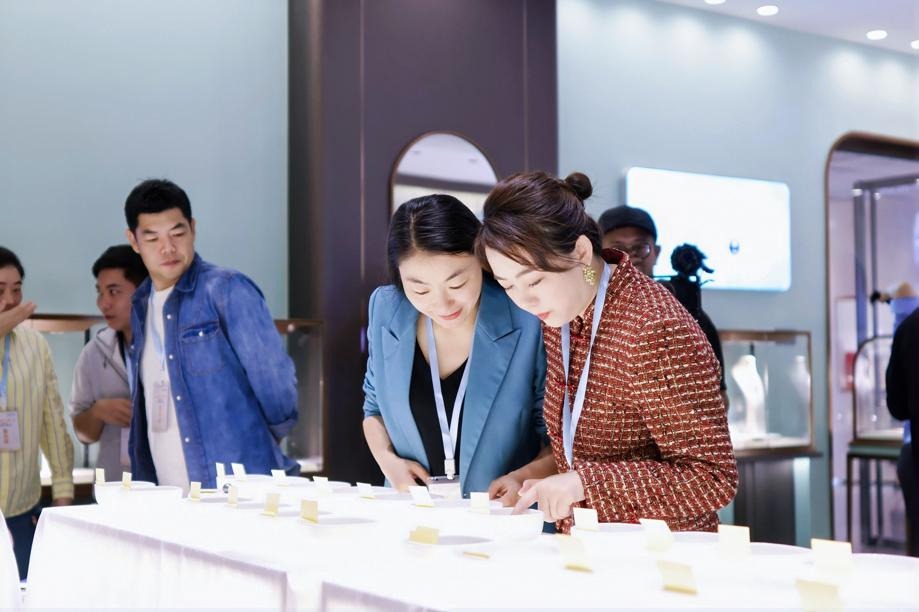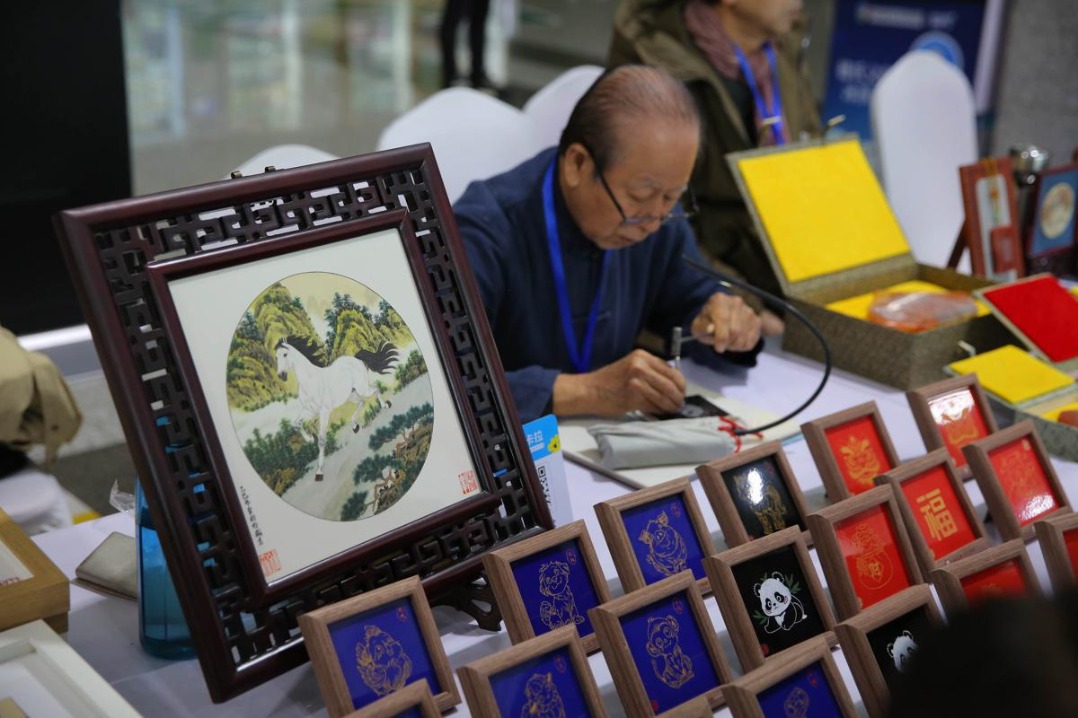Master of the trade keeps developments on the boil


Once 88-year-old Xiao Shiying started talking about tea, he couldn't stop. Despite his age, he maintained a robust pace while walking around the tea garden to which he has dedicated his working life.
In Yunnan province, Xiao is known as the "Tea Master". He created several strains via asexual reproduction to solve the problem of low production due to a lack of seeds; he devised a cutting method that helped achieve a higher survival rate and faster leaf growth; and he founded a pioneering "vertical tea garden" in Pu'er city, the home of Pu'er tea trees.
Traditionally, tea trees are planted in rows on ridges, forming a flat cultivation area when seen from above.
However, that method leaves the lower branches exposed and susceptible to moss and lichens, while a large amount of soil is exposed between each row. That means the trees have little cover from drought and cold, which in turn leads to soil erosion. The method also results in low yields.
In the "vertical tea garden", though, the trees are not only planted on the top of the ridge but also on the sloped side to shield the exposed areas.
Each row is planted with two plant varieties that blossom at different times, so that during the harvest season the laborers do not need to rush to pick all the tea at once.
The model makes full use of the space available, and the per-hectare output is equivalent to that of 1.5 to 2 hectares, Xiao said.
The tea trees are planted alongside other species such as toon and peach, which offer shade and shield the plants from wind, frost and weeds.
The use of fertilizers and pesticides is prohibited, so Xiao uses predators such as chickens, spiders and dragonflies to eat pests.
"Each garden is a small ecosystem, and the chickens, fruit trees and tea-picking activities can also be used to attract tourists. In this way, our tea garden provides combined benefits," he said.
Xiao was born in 1933 in Hunan province. When his school held a tea exhibition, a teacher from Taiwan brought samples of Yunnan tea leaves to the event. Xiao was amazed by their size.
"Yunnan tea leaves are about the size of a man's palm. I found them very surprising," he said.
After graduating with a bachelor's in tea science from Wuhan University in 1953, he applied for a job in Yunnan.
He was later assigned to work at an experimental tea cultivation area, the only facility for such research at the time.
When he first tried promoting his planting method among local farmers, many didn't understand. They thought they wouldn't be able to produce any tea if no pesticides were used, he said.
In the old days, farmers relied heavily on chemical fertilizers, which raised the level of acidity in the soil. Meanwhile, excessive use of pesticides helped insects to develop a resistance to drugs, forming a vicious cycle.
"It took more than 20 years to prove that green development works. Our tea garden doesn't use pesticides or fertilizers, but output is still high and the quality is superior."
Xiao has had many opportunities to leave Yunnan and teach at prestigious universities in other more-developed areas. However, he has rejected them all because he said his work would become meaningless if he abandoned research.
"We took the first step forward, and we believe that all future development should follow this direction, the path of green growth," he said.
- Team of Chinese, US scientists identifies key tumor cell state driving cancer growth, drug resistance
- China successfully conducts first metal 3D printing experiment in space
- Debt-ridden children's hospital gains strong public support, but future still uncertain
- China hands over 17 Filipino sailors from shipwreck to Philippines
- Topography, extreme rainfall causes of Guizhou landslide, report says
- Various activities held to welcome upcoming Laba Festival




































